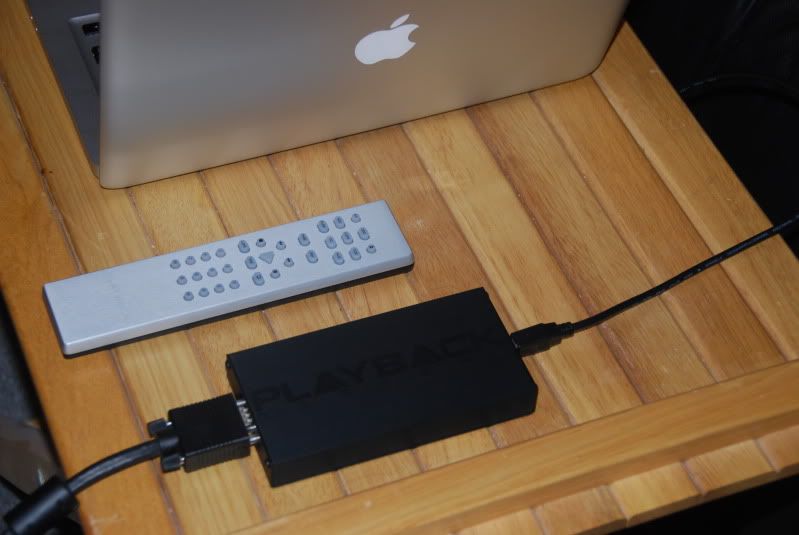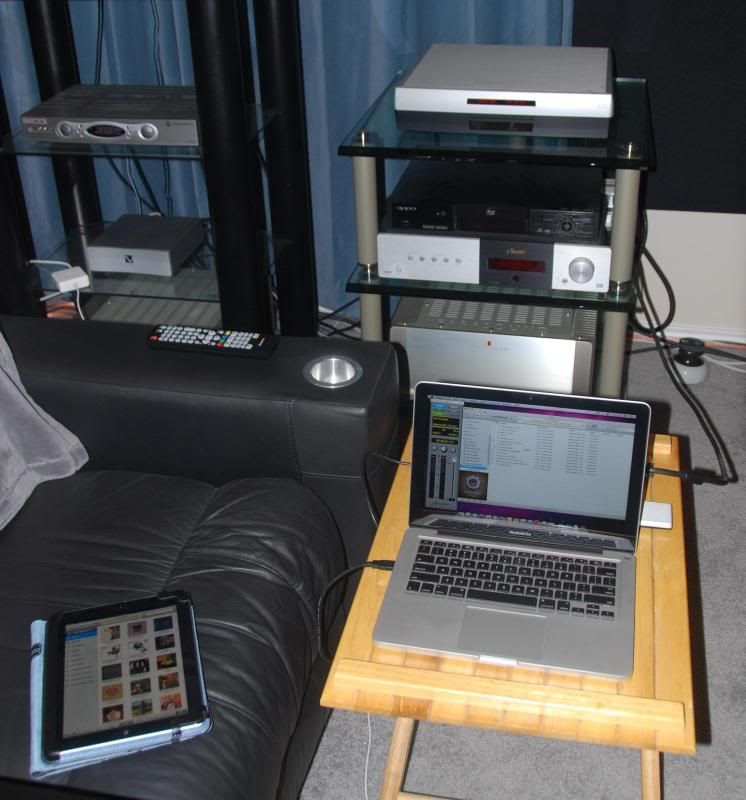Usb-x
- Thread starter wizard
- Start date
You are using an out of date browser. It may not display this or other websites correctly.
You should upgrade or use an alternative browser.
You should upgrade or use an alternative browser.
What does it do? I get the USB side but the VGA style connection is non-standard. Does that port connect to their DAC to provide USB interface?
From the PD site - PC: Optional External USB-X connection to computers for sample rates up to 384kHz (PCM) and 6.1MHz (DSD)
It connects to the Auxiliary port

It connects to the Auxiliary port

Thanks. The picture is fuzzy but do I see correctly that the non-balanced coax input is only RCA and not BNC?
The USB-X box will be available in June.
It's their own proprietary design, not using a 3rd party chip solution.
It's their own proprietary design, not using a 3rd party chip solution.
Last edited:
could somebody explain to me how PD manages the bottleneck usb to expand from commonly thought max 24/96 to 6.1MHz? And does it work both ways, i.e. could you copy SACD's ???
Egidius
I personally use a Wadia S7i, anybody compared it with Playback Design?
Egidius
I personally use a Wadia S7i, anybody compared it with Playback Design?
The limitation of 24/96 (or 48K in case of PD) comes from the ancient USB 1.1 speed limitation. USB 2.0 has been common in PCs for probably a decade. It has a peak speed of 480 mbit/sec. So 6.1 mbit/sec DSD is a walk in the park for it, taking up 1/80th of the channel capacity. The box takes an internal proprietary interconnect (AUX port above) and converts it to standard USB 2.0. At least that is what I gather looking at the box.
thanks for the quick reply: how come most producers are still locked in 24/96? the 2.0 standard has long been established! ??
What other difficulties are there? this is of course apart from the consideration that most of us will never hear the difference between 24/96 vs 24/192 let alone higher numbers ;-)
What other difficulties are there? this is of course apart from the consideration that most of us will never hear the difference between 24/96 vs 24/192 let alone higher numbers ;-)
I find the notion of this USB-X quite fascinating. Talking to my friend Jonathan Tinn about its pending release it is truly a novel idea as it is tantamount to an inboard sound card. It is plug and play inasmuch as as it is wired into the "AUX"port of the Playback Designs and can do all the way up to DSD. It would be interesting if in the future DSD files will be released.
Kudos to Jonathan, Andreas and Playback Designs for staying ahead of the curve.
This is the direction I will take when I finally build my computer based music server.
According to Jonathan all you need is the computer with External hard drive--->USB-X--->Playbackback Designs.
This is almost too easy
Kudos to Jonathan, Andreas and Playback Designs for staying ahead of the curve.
This is the direction I will take when I finally build my computer based music server.
According to Jonathan all you need is the computer with External hard drive--->USB-X--->Playbackback Designs.
This is almost too easy
This is almost too easy
Tell me you didn't just say that......
Lee
how come most producers are still locked in 24/96? the 2.0 standard has long been established! ??
A common misunderstanding.
There is USB 1/2/3 (the bus) and USB audio class 1 and 2.
The USB audio class 1 is limited to 24/96, the USB audio class 2 allows for 24/176&192
From mid 2010 on USB audio class 2 drivers are available in OSX 10.6.4 and Linux.
It is unclear if Microsoft is going to support USB Audio 2.
http://thewelltemperedcomputer.com/KB/USB.html
The external USB-X box for the 5 series.

Hard to tell from the Photo: But is the USB port Type A or Type B?
A common misunderstanding.
There is USB 1/2/3 (the bus) and USB audio class 1 and 2.
The USB audio class 1 is limited to 24/96, the USB audio class 2 allows for 24/176&192
From mid 2010 on USB audio class 2 drivers are available in OSX 10.6.4 and Linux.
It is unclear if Microsoft is going to support USB Audio 2.
http://thewelltemperedcomputer.com/KB/USB.html
Although to be fair Vincent, the USB 2.0 is more critical than the audio class IMO as drivers can be built without the audio class 2 specification (which we have and do see with some products out there and those that are starting to come out with over 192), but the USB 2.0 is always necessarily for the speed-bandwidth requirements and chip hardware.
The USB audio Class 2 is of benefit that it brings higher quality audio without further complications of seperate drivers (so is more universal for various USB products to PC connection), but I feel it is also being used as a marketing tool by some manufacturers.
However it comes down to how much you trust development of drivers by an audio manufacturer (which they may or should outsource), or whether the USB audio class 2 specification is implented well within the operating system (the OS architecture is not compromised in any way).
Personally I feel both ways are useful.
Cheers
Orb
Your absolutely right.
Long before USB audio class 2 there where USB DACs doing > 96.
Even async has been implemented by companies like Tascam en Emu before it was made salonfähig by Gordon Rankin.
It is most of all a matter of cost. Most audio companies are too small, don’t have the budget and the means to develop and maintain a driver at the PC side.
Long before USB audio class 2 there where USB DACs doing > 96.
Even async has been implemented by companies like Tascam en Emu before it was made salonfähig by Gordon Rankin.
It is most of all a matter of cost. Most audio companies are too small, don’t have the budget and the means to develop and maintain a driver at the PC side.
Your point is well taken Orb. On addition though if I may. I have had old sound cards that got discontinued and with them, lack of compliant drivers with new operating system. While not a sound card, my wife's color laser printer is one such animal. It stopped functioning when Windows 7 came out and its driver would no longer install. Company going out of business is another risk here and with so many DAC companies around these days, relying on drivers supplied by them can be risky.
By using the class drivers in the Operating system, one has high assurance that devices will work well into the future. A DAC is not something that wears out quickly. I still have my 10+ year old Mark Levinson DAC. It would be good to have it then outlast multiple revisions of the operating system.
By using the class drivers in the Operating system, one has high assurance that devices will work well into the future. A DAC is not something that wears out quickly. I still have my 10+ year old Mark Levinson DAC. It would be good to have it then outlast multiple revisions of the operating system.
Yeah that is part of the trust/risk I agree. especially when changing to a newer OS where driver implementation by the software can be different as in the case you show.
But then it could be argued that there is potential the the OS developer justs shoehorns the specification into its architecture, which can or may give other implications.
An OS architecture does not necessarily lend itself to supporting such changes, whereas it can be done within the developed driver albeit with the risk that it will not work with next OS release.
Both have their uses IMO, just needed to know the limitations, especially with Windows
Cheers
Orb
But then it could be argued that there is potential the the OS developer justs shoehorns the specification into its architecture, which can or may give other implications.
An OS architecture does not necessarily lend itself to supporting such changes, whereas it can be done within the developed driver albeit with the risk that it will not work with next OS release.
Both have their uses IMO, just needed to know the limitations, especially with Windows
Cheers
Orb
Your point is well taken Orb. On addition though if I may. I have had old sound cards that got discontinued and with them, lack of compliant drivers with new operating system. While not a sound card, my wife's color laser printer is one such animal. It stopped functioning when Windows 7 came out and its driver would no longer install. Company going out of business is another risk here and with so many DAC companies around these days, relying on drivers supplied by them can be risky.
By using the class drivers in the Operating system, one has high assurance that devices will work well into the future. A DAC is not something that wears out quickly. I still have my 10+ year old Mark Levinson DAC. It would be good to have it then outlast multiple revisions of the operating system.
Hi Amir, You make a great point. My thought on this issue, is that once you have a dedicated music PC compiled, and everything is working well, there is no reason to ever change the OS.
Hello Everyone, I received my USB-X earlier this week, and thought I would share a couple of pictures. I'm using a Mac Book Pro running Amarra, utilizing an iPad 2 for a remote.




Hello Everyone, I received my USB-X earlier this week, and thought I would share a couple of pictures. I'm using a Mac Book Pro running Amarra, utilizing an iPad 2 for a remote.
Thanks for the update. My USB-X is being shipped on Monday. Any first impressions?
Last edited by a moderator:
Similar threads
- Replies
- 7
- Views
- 513
- Replies
- 15
- Views
- 429
- Replies
- 18
- Views
- 1K
Members online
- esperance
- south
- bonzo75
- Massimo66
- svirid petrovich
- matakana
- matthias
- Klonk
- Ketran
- brad225
- Vhond
- the sound of Tao
- andromedaaudio
- Danne75
- hopkins
- P-pan
- fizzletop
- Another Johnson
- Argonaut
- oknotok
- Chpray
- sjs
- gian60
- kasin
- Buggy
- kodomo
- dimitrisx
- GuyB
- audioblazer
- Aries Cerat
- Seismion
- Wjhen
- bravoaarom
- Holli82
- iain
- thekong
- Hiroshi
- Kris
- Oortje
- tsaett
- JMaudiophile
- sigbergaudio
- Stbo
- markramler
- Artnet
- SlapEcho
- kagilulfo
- itay123
- dctom
- crosswind
Total: 778 (members: 57, guests: 721)
| Steve Williams Site Founder | Site Owner | Administrator | Ron Resnick Site Co-Owner | Administrator | Julian (The Fixer) Website Build | Marketing Managersing |

